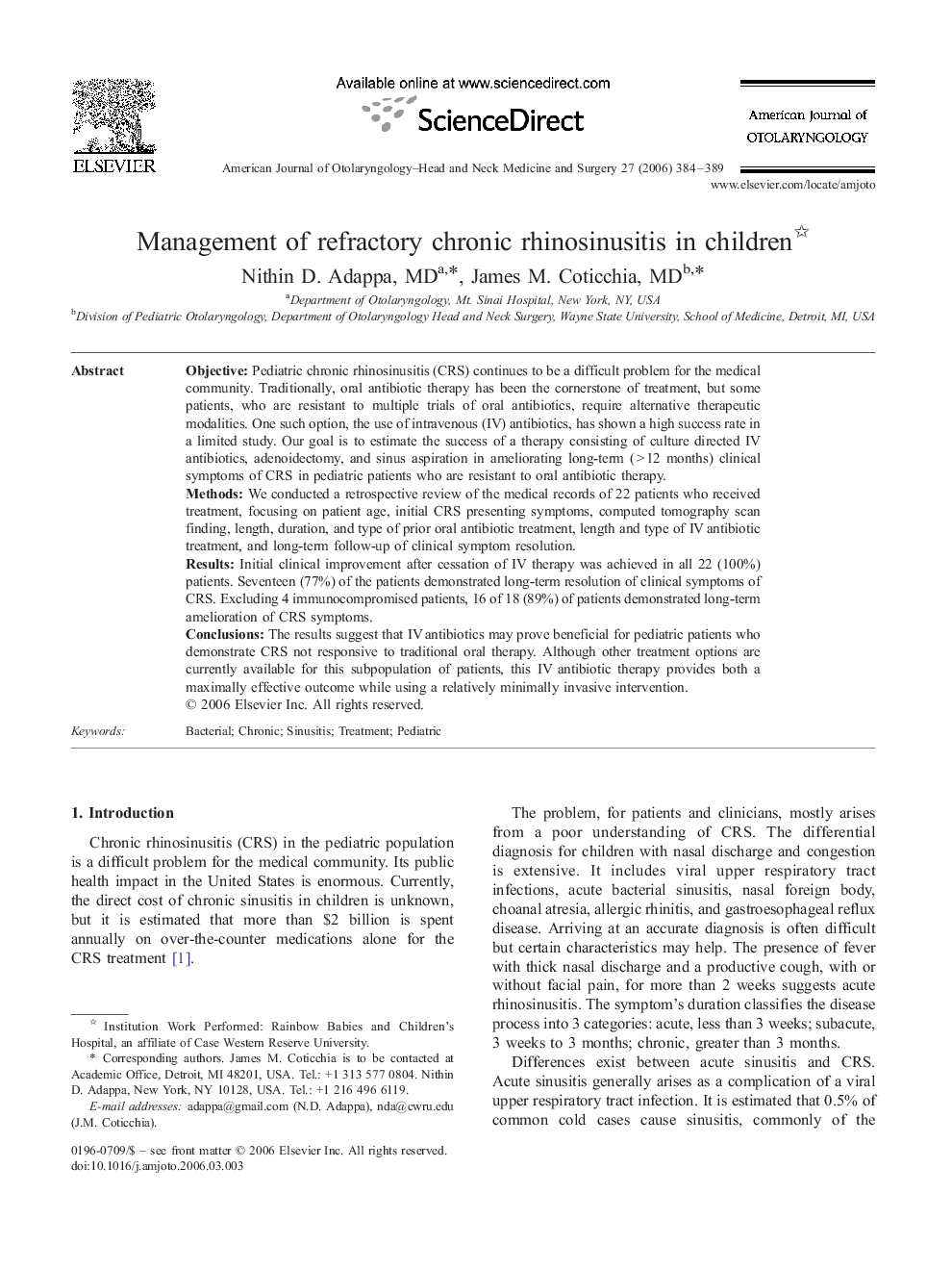| Article ID | Journal | Published Year | Pages | File Type |
|---|---|---|---|---|
| 4104454 | American Journal of Otolaryngology | 2006 | 6 Pages |
ObjectivePediatric chronic rhinosinusitis (CRS) continues to be a difficult problem for the medical community. Traditionally, oral antibiotic therapy has been the cornerstone of treatment, but some patients, who are resistant to multiple trials of oral antibiotics, require alternative therapeutic modalities. One such option, the use of intravenous (IV) antibiotics, has shown a high success rate in a limited study. Our goal is to estimate the success of a therapy consisting of culture directed IV antibiotics, adenoidectomy, and sinus aspiration in ameliorating long-term (>12 months) clinical symptoms of CRS in pediatric patients who are resistant to oral antibiotic therapy.MethodsWe conducted a retrospective review of the medical records of 22 patients who received treatment, focusing on patient age, initial CRS presenting symptoms, computed tomography scan finding, length, duration, and type of prior oral antibiotic treatment, length and type of IV antibiotic treatment, and long-term follow-up of clinical symptom resolution.ResultsInitial clinical improvement after cessation of IV therapy was achieved in all 22 (100%) patients. Seventeen (77%) of the patients demonstrated long-term resolution of clinical symptoms of CRS. Excluding 4 immunocompromised patients, 16 of 18 (89%) of patients demonstrated long-term amelioration of CRS symptoms.ConclusionsThe results suggest that IV antibiotics may prove beneficial for pediatric patients who demonstrate CRS not responsive to traditional oral therapy. Although other treatment options are currently available for this subpopulation of patients, this IV antibiotic therapy provides both a maximally effective outcome while using a relatively minimally invasive intervention.
